Medvedev issues defiant message to extremists
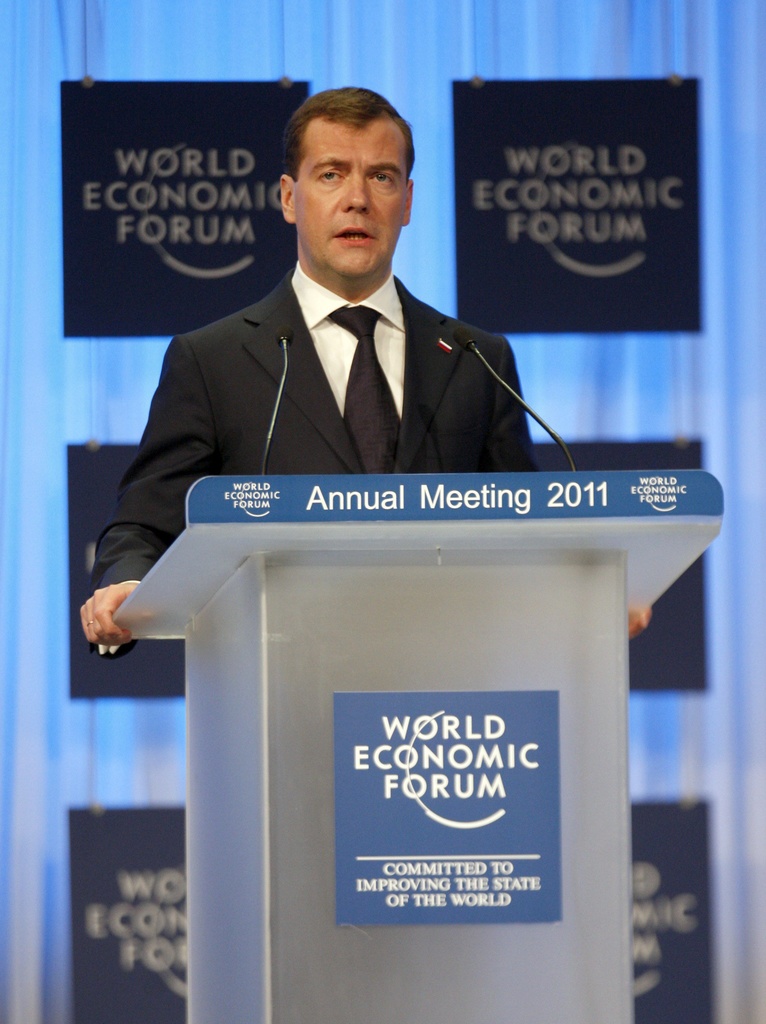
Russian President Dimitri Medvedev used his keynote speech at the World Economic Forum (WEF) to call on the global community to act in unison to eradicate terrorism.
Medvedev had reversed an initial decision not to speak at Davos following Monday’s terrorist attack that claimed 35 lives and injured more than 100 at Moscow’s main airport.
“The people who committed this heinous act expected that it would bring Russia to its knees,” he said on Wednesday’s opening day of the annual WEF Davos meeting. “They hoped that [Russia’s] president would not attend this forum – they miscalculated.”
“Russia is aware of its place in the world and its responsibilities to its own citizens and to the world community. That is the reason that I am speaking at this rostrum today.”
Delegates stood and observed a minute’s silence for the casualties of the suicide bombing at Domodedovo airport. Medvedev jetted into Davos on Wednesday specifically to deliver his message and returned to Russia straight after his speech.
Concerted action
“There are no universal solutions to combating this evil. But our success in countering this considerable threat relies on our solidarity and concerted action,” Medvedev told the assembled audience of political, business and civil society leaders.
He called for the establishment of a global monitoring and early warning system along with a treaty on security to be signed by European countries.
Although Medvedev has promised strong action against terrorists, he assured the Davos delegates that this would not involve a crackdown on social website networking that could be interpreted as an abuse of the freedom of speech.
“Sometimes this serves as an important instrument for extremists, traffickers of drugs and armaments and terrorists,” he said. “[But] Russia will not support initiatives that call into question the freedom of the internet.”
Instead, he called for a new “global partnership” to improve poverty, unemployment, illiteracy and environmental problems.
Global thinking
This appeal struck a chord with Swiss Foreign Minister Micheline Calmy Rey – 2011 Swiss president under the revolving system of bestowing the title on a different cabinet minister every year – who officially opened the WEF annual meeting in Davos before Medvedev’s speech.
Calmy Rey called for a new system of “global governance” to redistribute wealth and opportunity to unlock opportunity in the poorest regions of the world.
“Our lifestyle is not sustainable,” she told the 2,500 delegates in Davos. “It is unfair on certain populations of the world that our lifestyle should continue in this way.”
Calmy Rey urged countries to abandon self-centered policies and to re-direct their thoughts along “global terms”.
Citing continued concerns about climate change and the destruction of the environment, she also called on nations to do more to grow in a sustainable manner. “This world is very fragile so let’s take care of it,” she said.
The 41st WEF annual meeting in Davos is running under the banner: “Shared Norms for the New Reality.”
Economic outlook
Earlier speakers at debates had outlined a precarious future for the world’s economy as different regions moved out of the global recession at different speeds. Delegates spoke of a shift in international economic power as emerging economies, such as China, speed ahead to leave struggling Europe and the United States in their wake.
The mood at this year’s Forum was one of cautious optimism, following the pessimism of delegates in the last two years.
Renowned US economist Nouriel Roubini told one debate that the global economy was precariously poised at a stage of “glass half empty and half full”.
The biggest risks to a sustainable recovery, according to the debate, are national debt problems in Europe, the growing US budget deficit, the two-paced speed of recovery in different parts of the world and the prospect of an ageing society – particularly in Europe and Japan.
The World Economic Forum started life as the European Management Forum in 1971.
Formed by German-born businessman Professor Klaus Schwab, it was designed to connect European business leaders to their counterparts in the United States to find ways of boosting connections and solving problems.
It is a non-profit organisation with headquarters in Geneva and is funded by the varying subscription fees of its members.
The forum took its current name in 1987 as it broadened its horizons to provide a platform for finding solutions to international disputes.
WEF conducts detailed global and country specific reports and conducts other research for its members. It also hosts a number of annual meetings – the flagship being Davos at the beginning of each year.
Davos has attracted a number of big names in the world of business, academia, politics and show business. These include: Nelson Mandela, Bill Clinton, Tony Blair, Bono, Angela Merkel, Bill Gates and Sharon Stone.
The 2011 Davos meeting takes place from January 26 to 30 and has attracted 2,500 delegates from 90 countries.
A suicide bomber killed 35 people and wounded 116 by detonating a bomb at Moscow’s busiest airport on Monday.
No group has claimed responsibility for the attack at Domodedovo airport, but it is bears the hallmark of militants fighting for a separatist Islamic state in the North Caucus region.
Russia has been the target of several terror attacks in the last few years. Two of these suicide attacks resulted in a higher casualty count than on Monday.
In August 2004, 90 people were killed when suicide bombers brought down two flights from Domodedovo airport.
In March 2010, a double suicide bombing on Moscow’s subway killed 40 and wounded more than 100 other commuters.

In compliance with the JTI standards
More: SWI swissinfo.ch certified by the Journalism Trust Initiative

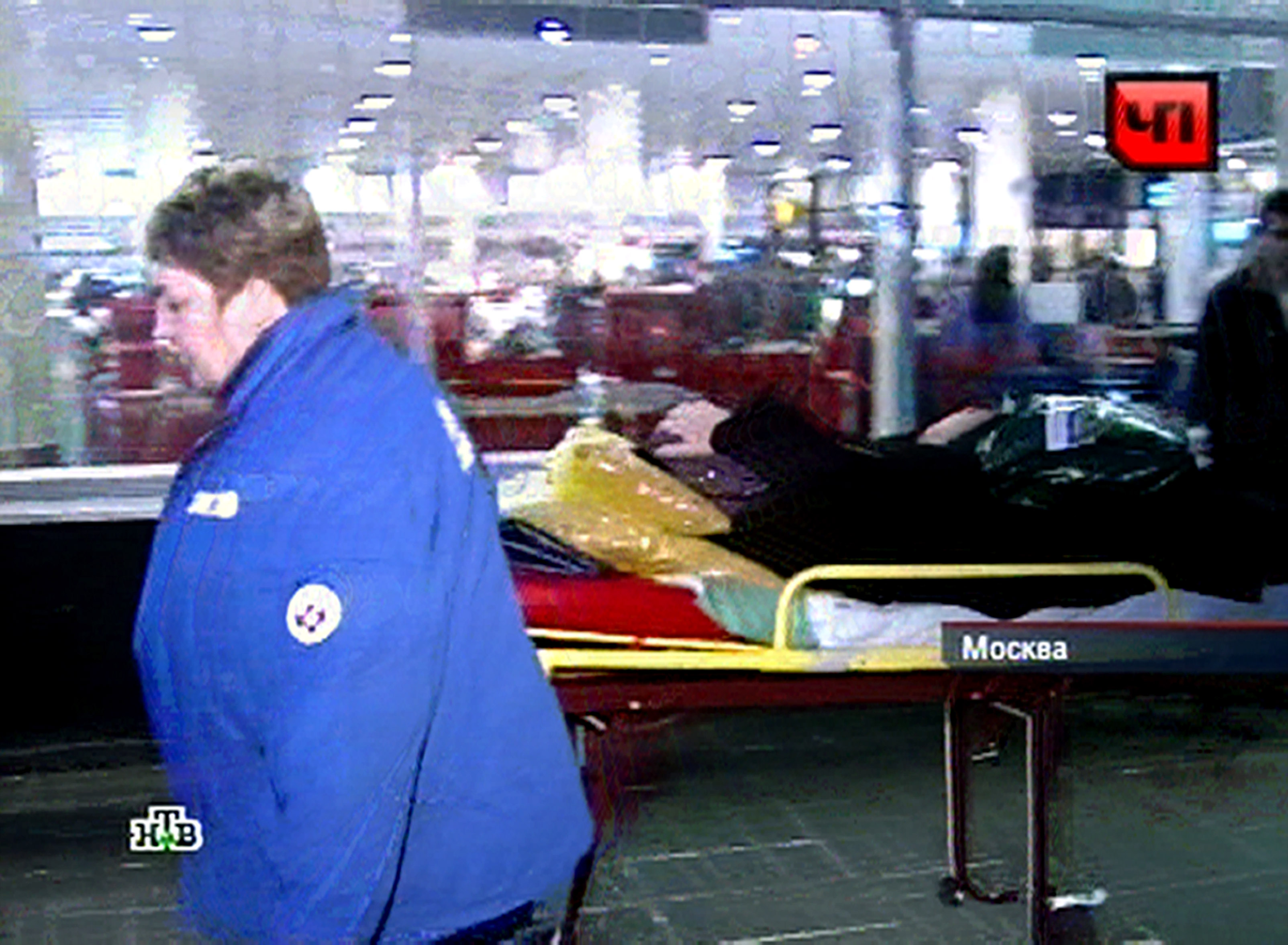
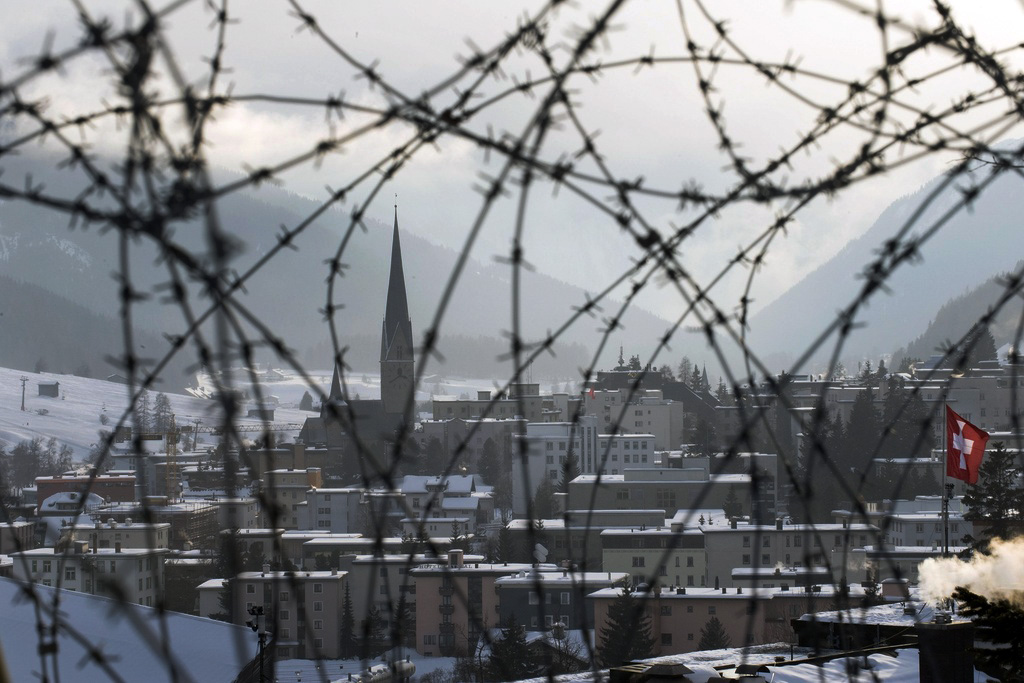
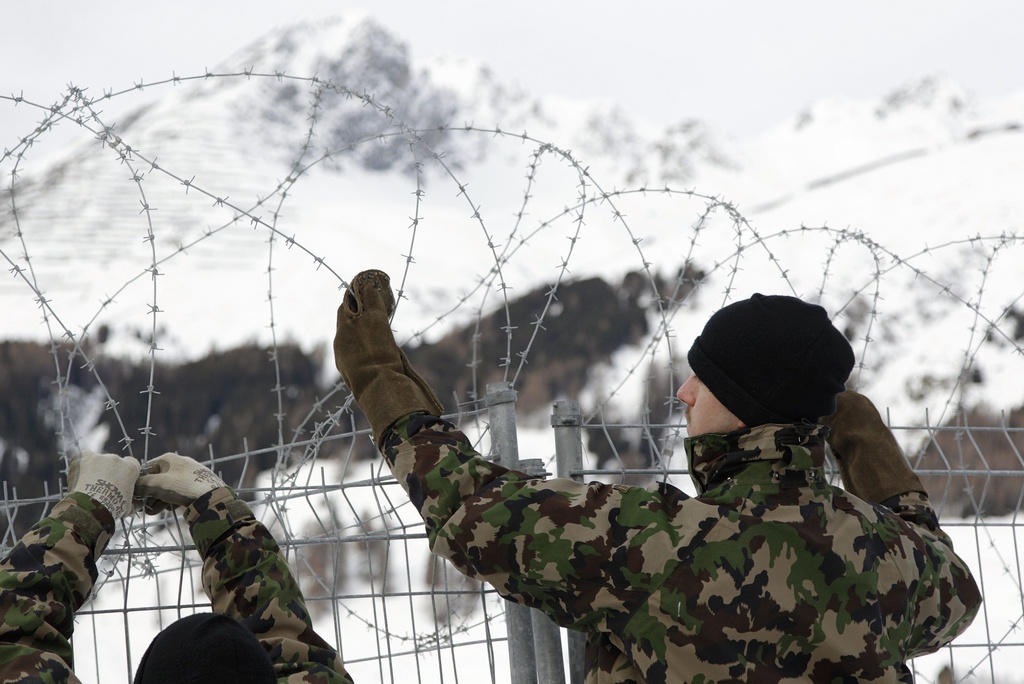
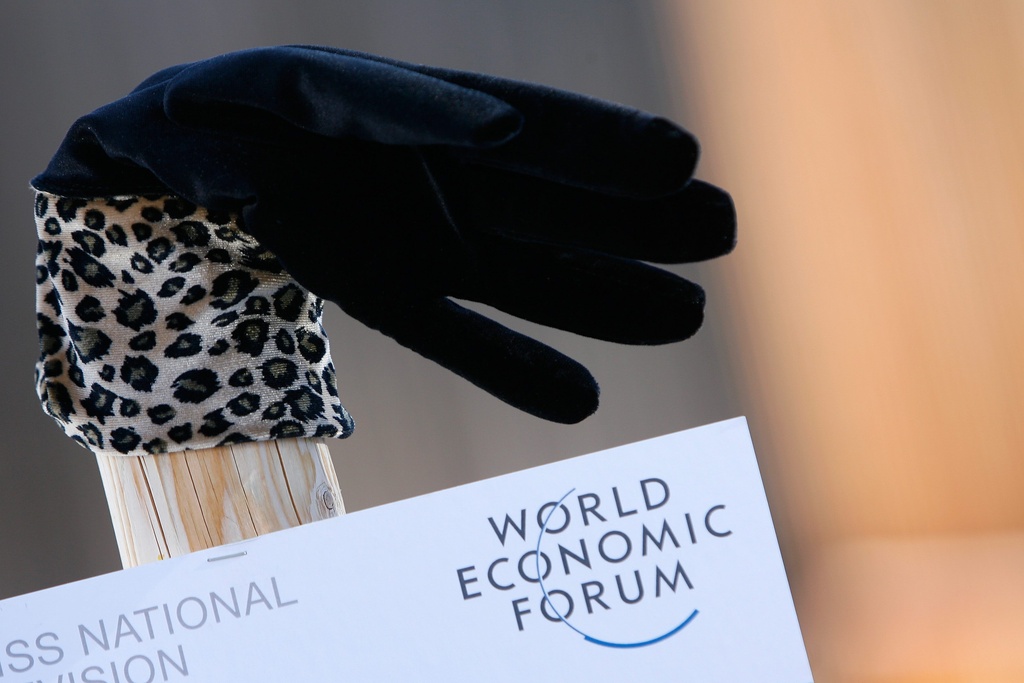
You can find an overview of ongoing debates with our journalists here. Please join us!
If you want to start a conversation about a topic raised in this article or want to report factual errors, email us at english@swissinfo.ch.